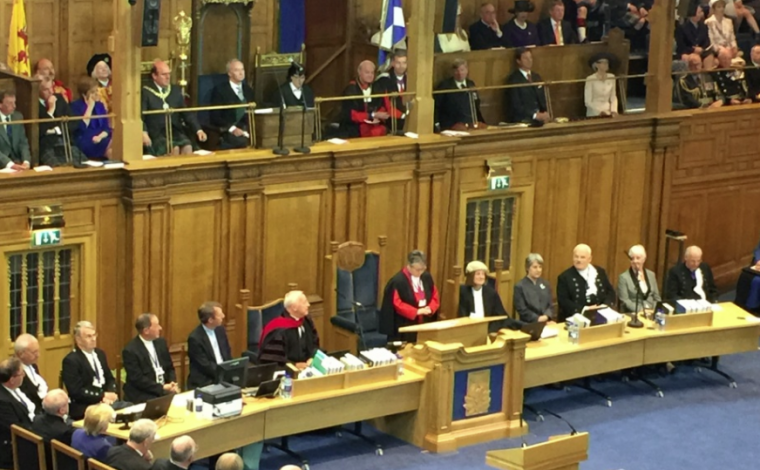Church of Scotland takes another step towards allowing same-sex marriages
The Church of Scotland's General Assembly voted yesterday in favour of a motion that will take it a step closer to approving ministers conducting same-sex marriages.
It voted by 345 by 170 to instruct its legal questions committee to prepare legislation with safeguards in accordance with Section 9 (1A) of the Marriage Scotland Act.

But commissioners agreed that the committee should only act if, in its opinion, these safeguards 'sufficiently protect against the risks they identify'.
It will report its findings to the General Assembly of 2020.
The motion was amended to ensure the committee had the power to recommend withdrawal following a call from Rev Peter White of Sandyford Henderson Memorial Church in Glasgow.
Speaking afterwards, Rev Bryan Kerr, who proposed the motion, said: 'I am delighted that that the General Assembly continues on a road where we are able to say to people in same-sex relationships that the Church has a place for you.
'I am pleased we have reached this point and I have already had reaction from parents of people in same-sex relationships who are overwhelmed that the Church accepts that God loves them.'
Rev Mark Malcolm, minister of Chryston Parish Church in Glasgow, is a member of evangelical Kirk group, Covenant Fellowship Scotland.
Reacting to the vote he said: 'From those of us who want to uphold the traditional and orthodox teaching of the Church, it is possibly as good an outcome as we could expect.
'Looking into the future, I think what is likely to happen is instead of the default position of the Church being orthodox and traditional, it will be revisionist .
'And you will have to opt in to the orthodox position rather than holding that position.'
He said the tone and tenor of the debate was civil and people were respectful of those who hold divergent views.
But he claimed that the decision had implications for peace and unity within congregations.
'This has not been a happy or peaceful process and people are largely weary and tired of this debate, ' he said. 'They just want to get on with what it means to be the church and proclaim the gospel.'











